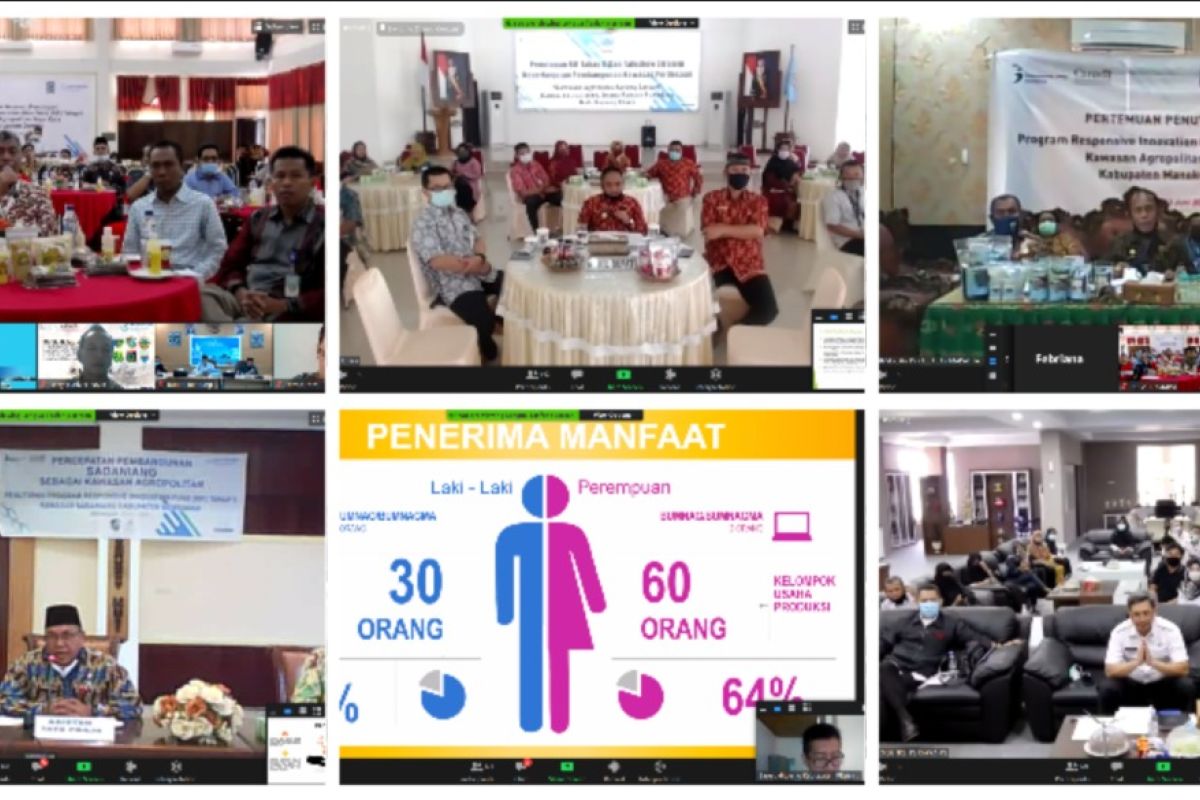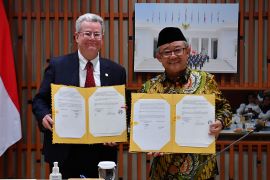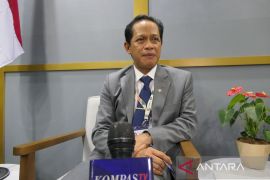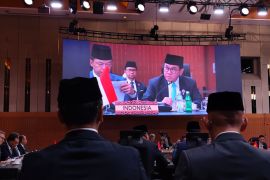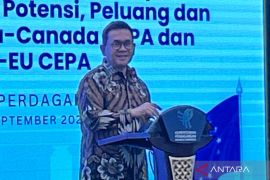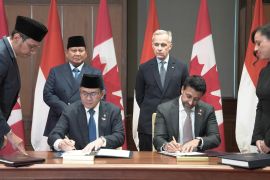Local economic development is the main pillar of the performance of the national economy. In line with this goal, local governments are seen as capable of carrying out various economic development innovations if supported by technical support and appJakarta (ANTARA) - Indonesia and Canada have completed the second phase of the Responsive Innovation Fund (RIF) program, which aims to strengthen and coordinate national support for the development of innovative local economies.
The innovations involve developing more efficient production processes, new methods for service delivery, sharing resources with other districts to increase efficiency, or using tools and technology to help overcome distances and other obstacles.
The program was implemented through Indonesia’s Ministry of National Development Planning and the National Development Planning Agency and Canada’s Global Affairs Canada (GAC), which is affiliated with cooperation projects of the National Support for Local Investment Climate and the National Support for Enhancing Local and Regional Economic Development (NSLIC/NSELRED).
Related news: Indonesia, Canada launch local economy development program
Related news: Indonesia, Canada agree to strengthen economic cooperation
In a statement issued in Jakarta on Monday, deputy of regional development at the Ministry of National Development Planning/National Development Planning Agency, Rudy Soeprihadi Prawiradinata, said the national development agenda outlined in the 2020-2024 National Medium-Term Development Plan (RPJMN) emphasizes the importance of tangible and measurable policies, programs, and activities to encourage accelerated rural and regional development.
"Local economic development is the main pillar of the performance of the national economy. In line with this goal, local governments are seen as capable of carrying out various economic development innovations if supported by technical support and appropriate instruments," Rudy said.
The NSLIC / NSELRED project provides capacity building support to improve the local investment climate and local economic development at the national level, and is being implemented in 28 selected districts and cities in Indonesia.
Of the 28 districts and cities, 18 have been listed as National Priority Rural Areas (KPPN) under the 2015-2019 and 2020-2024 National Medium-Term Development Plans (RPJMN). The 18 regions have received support through RIF, the grant scheme in the NSLIC / NSELRED Project.
Six regions and innovations were selected for Phase II of the RIF. Manokwari district in West Papua province was selected for the development of organic cocoa and coconut. Dompu district in West Nusa Tenggara province was chosen for a program to increase corn derivative products. Mempawah district in West Kalimantan province was selected for the development of organic black and red rice.
The South Coastal district in West Sumatra was selected for the development of fishery and fruit derivative products to support tourism in the South Coast region of the province; Kayong Utara district in West Kalimantan province for the development of organic corn and coconut; and, Sidenreng Rappang district in South Sulawesi for the development of organic rice to improve food security in the province.
The implementation of the RIF program is expected to be one of several strategic initiatives to support the 2015-2019 and 2020-2024 National Medium-Term Development Plans (RPJMN).
Under Phase II of the RIF program, carried out from April, 2019 to July, 2020, around 700 beneficiaries, including the government, private sector, academia, research institutions, and MSMEs, have received assistance through more than 100 trainings, training sessions, and other types of technical support.
Assistance has also been provided to develop and strengthen local institutions, commodities, or products, and to improve market relations. RIF pilot interventions have opened up employment opportunities for at least 2,929 people, with further opportunities identified for replication and improvement.
Head of cooperation (Indonesia), Global Affairs Canada (GAC), Pierre-Yves Monnard, congratulated the six participating regions for the progress made in terms of increasing productivity, market access, and capacity of local communities, in particular, at least 3,274 women beneficiaries and 142 women's business groups.
"This has helped advance gender equality and promoted the empowerment of women in these areas," Monnard noted.
Monnard also expressed his appreciation for the commitment and support of the national and regional governments towards the implementation of the RIF program’s Phase II.
He noted how the development of the local economy and the improvement of local communities through e-commerce and digitalization has helped them become resilient during the pandemic.
He said he hoped the results achieved and the capacity building can be maintained and expanded further after Phase II of the program.
Related news: Ministry holds business-matching event to boost exports to Canada
Related news: Indonesia eyes increase in coffee export to Canada
Translator: Citro Atmoko, Azis Kurmala
Editor: Mulyo Sunyoto
Copyright © ANTARA 2020
